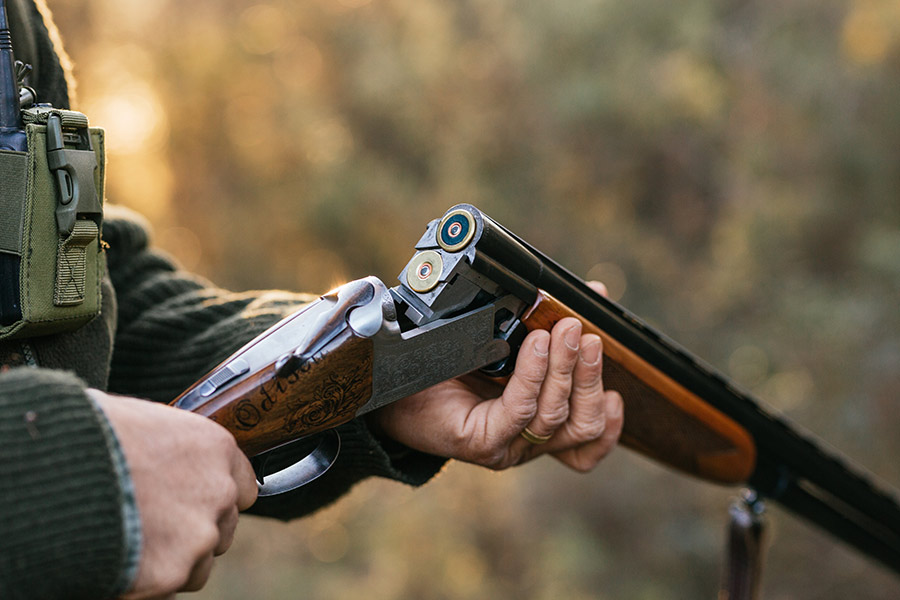Guides, outfitters and spotters
If you are a fishing or hunting outfitter, guide or spotter operating on public land in Utah, there are several changes to the licensing process, effective July 1, 2025. During the 2025 Utah Legislative session, a new law (SB 149) was passed requiring the Utah Department of Natural Resources to regulate hunting and fishing outfitters, guides and spotters. (Previously, guides and outfitters were regulated by the Utah Division of Professional Licensing.)
Under the new law, a guide, outfitter or spotter — someone who is being compensated $100 or more to assist individuals in hunting or fishing activities on public land — must obtain a certificate of registration (COR) and pay a fee to the Utah Division of Wildlife Resources.
How to register
- Complete the Outfitters, guides and spotters orientation course.
- Apply for a DWR certificate of registration (COR) here.
- Applications must be renewed annually by March 31.
- Note: If you are a guide or spotter affiliated with an outfitter, you will need to provide your outfitter's affiliate code in your COR application.
- Once your COR application is approved, you will be issued an authorization code (sent to the email address you provide) and further instructions for completing payment.
- Pay a fee to the Utah Division of Wildlife Resources online or at a DWR office.
- Important: In order to be issued a COR, you must complete the Outfitters, guides and spotters orientation course and have a valid Utah hunting, fishing or combination license.
- You are required to carry your COR in the field with you, along with your hunting, fishing or combination license. Both of these documents can be printed or downloaded to your Utah Hunting and Fishing app.
Fees
Resident fees:
- Resident outfitter all species (including big game and bear): $500
- Resident outfitter small game/upland/fishing only : $350
- Resident guide all species (including big game and bear): $250
- Resident guide small game/upland/fishing only: $175
- Resident spotter all species: $125
Nonresident fees:
- Nonresident outfitter all species (including big game and bear): $1,500
- Nonresident outfitter small game/upland/fishing only $1,000
- Nonresident guide all species (including big game and bear): $750
- Nonresident guide small game/upland/fishing only: $500
- Nonresident spotter all species: $375
Frequently asked questions
How are outfitter, guide and spotter responsibilities defined for the purposes of obtaining a COR?
An outfitter provides any of the following services for those hunting or fishing for protected wildlife on public land:
- Transporting people, equipment, supplies, or protected wildlife to or from any location.
- Cooking or providing meals for participants who are hunting or fishing.
- Packing services, protection services or supervising services.
A guide is an individual who — on public lands — guides, leads or assists an individual in hunting or fishing for protected wildlife.
A spotter is an individual compensated by a hunting outfitter or guide to locate or monitor the location of protected wildlife on public land.
Note: Guide and spotter services are included in the duties and responsibilities of an outfitter. Meaning, an outfitter may act as a guide, but a guide or spotter may not act as an outfitter.
How is “compensation” defined for the purposes of the COR requirement?
Compensation means anything of economic value in excess of $100 that is paid, loaned, granted, given, donated or transferred to an outfitter, guide or spotter for providing a service, material or property.
What are the residency requirements for outfitters, guides and spotters?
Residency requirements for the outfitter, guide and spotter COR is linked to your residency status, not the residency of your clients. See Utah's definition of residency for details.
What are the field requirements for outfitters, guides and spotters?
- No more than two individuals may be assigned to a client while hunting or fishing for protected wildlife.
- No more than three individuals may be assigned to a client while hunting for a once-in-a-lifetime species (moose, bison, bighorn sheep or mountain goat).
- Individual hunting guides and spotters must be assigned to a specific outfitter.
- It is the responsibility of an outfitter or guide to ensure that a client is adhering to all wildlife laws, rules and regulations.
What happens if a guide or outfitter violates wildlife laws?
A violation of Utah law, rule or terms of a certificate of registration may result in:
- Revocation of the certificate of registration.
- Suspension of the outfitter's, guide's or spotter's privilege to hunt and/or fish.
Will I lose my official licensing and accreditation as an outfitter or guide through this new process?
The certificate of registration is the new official process and documentation for guides, outfitters and spotters in Utah.
Do I still need to apply for a special-use permit (and pay the annual fee) if I am guiding on a Waterfowl Management Area?
Yes, in 2021 the Wildlife Board required guides and outfitters to have a special-use permit before guiding or transporting hunters across a waterfowl or wildlife management area. More information can be found at: https://wildlife.utah.gov/wmaguiding.html
Questions?
Email: This email address is being protected from spambots. You need JavaScript enabled to view it.
